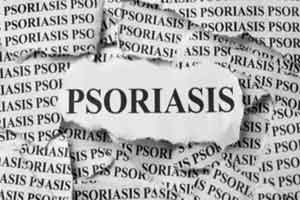- Home
- Editorial
- News
- Practice Guidelines
- Anesthesiology Guidelines
- Cancer Guidelines
- Cardiac Sciences Guidelines
- Critical Care Guidelines
- Dentistry Guidelines
- Dermatology Guidelines
- Diabetes and Endo Guidelines
- Diagnostics Guidelines
- ENT Guidelines
- Featured Practice Guidelines
- Gastroenterology Guidelines
- Geriatrics Guidelines
- Medicine Guidelines
- Nephrology Guidelines
- Neurosciences Guidelines
- Obs and Gynae Guidelines
- Ophthalmology Guidelines
- Orthopaedics Guidelines
- Paediatrics Guidelines
- Psychiatry Guidelines
- Pulmonology Guidelines
- Radiology Guidelines
- Surgery Guidelines
- Urology Guidelines
Two New Psoriasis Guidelines address Treatment and Comorbidities

American Academy of Dermatology and the National Psoriasis Foundation have released two new guidelines outlining best practices for managing the inflammatory skin disease. Published online in the Journal of the American Academy of Dermatology .
The effects of psoriasis extend beyond visible symptoms of psoriasis on the skin. The disease is associated with several other physical and mental conditions, and it can have a significant impact on patients’ quality of life.
The guidelines were developed by an expert workgroup composed of several dermatologists, as well as a cardiologist, a rheumatologist and patient representatives to help physicians treat the millions of people affected by psoriasis and improve their quality of life,
“It is critical for both patients and doctors to understand the complexity of psoriasis. It is not just a skin disease; it is a serious condition that can affect all aspects of a patient’s health,” says Randy Beranek, president and CEO of the NPF. “Our goal in establishing these guidelines is to help health care professionals educate their patients on the best way to treat their disease and mitigate the effects psoriasis can have on a patient’s overall health and well-being.”
“Joint AAD-NPF guidelines of care for the management and treatment of psoriasis with awareness and attention to comorbidities” focuses on the other health conditions that may be associated with the disease, including psoriatic arthritis, cardiovascular disease, metabolic syndrome and inflammatory bowel disease. The guideline also addresses the increased risk of anxiety and depression in psoriasis patients, as well as the effects of smoking and alcohol consumption, which can increase one’s risk of developing the disease or make the condition worse in those who already have it.
“We believe this guideline will be a vital resource in the treatment of psoriasis,” says board-certified dermatologist Craig A. Elmets, MD, FAAD, co-chair of the work group that developed the guidelines. “Doctors should be aware of the conditions associated with this disease, educate patients accordingly, and work with those patients and other physicians to ensure that each patient receives the appropriate screening and treatment.”
“Joint AAD-NPF guidelines of care for the management and treatment of psoriasis with biologics” provides an overview of the biologic medications available for the treatment of moderate to severe psoriasis. In addition to outlining the research on these drugs’ effectiveness and recommendations for their use, the guideline describes the potential adverse effects of each biologic.
“Before starting any psoriasis treatment, it’s important for patients to understand its potential effects, both positive and negative,” says board-certified dermatologist Alan Menter, MD, FAAD, co-chair of the guidelines work group. “This guideline provides physicians with the information they need to discuss biologic medications with their patients and help them choose the treatment plan that’s best for them.”
“If you’re struggling with psoriasis, a board-certified dermatologist can help you manage the condition and improve your quality of life,” adds board-certified dermatologist Suzanne M. Olbricht, MD, FAAD, president of the AAD. “We hope these guidelines serve as a valuable resource for physicians in providing high-quality care for psoriasis patients.”
The two guidelines published today are the first installments in a series of six, with four other psoriasis guidelines slated for publication in JAAD in the coming months. Upcoming guidelines will address phototherapy, the treatment of pediatric patients, non-biologic systemic medications and topical therapy.

Disclaimer: This site is primarily intended for healthcare professionals. Any content/information on this website does not replace the advice of medical and/or health professionals and should not be construed as medical/diagnostic advice/endorsement or prescription. Use of this site is subject to our terms of use, privacy policy, advertisement policy. © 2020 Minerva Medical Treatment Pvt Ltd